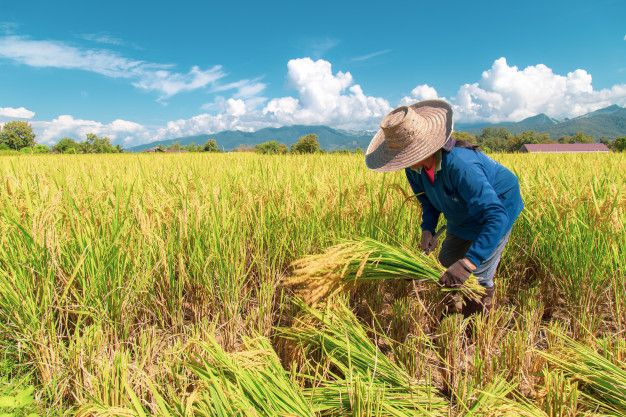Rice Harvest Project To Aid Single-Mother Households Is A Big Success In Japan
A program to distribute newly harvested rice to single-mother families is spreading throughout the three prefectures of the central region of Japan’s Tokai region. Children and mothers who harvested rice were delighted by the bounty of the fields.

The rice plantation begins in June, and farmers and volunteers join forces to grow rice in paddies exclusive to farmers. Many mothers expressed appreciation for this program, saying that it has helped them and their children are now able to appreciate food.
Kenichi Irimoto, a 46-year-old farmer who lives nearby, helped children learn about harvesting rice in Aichi Prefecture. Irimoto utilized a combine harvester to pick rice from the about 1,000 square meter field after harvesting some grain by hand.
A total of about 20 moms and children came forth to take part in this project through the prefectural welfare federation of single-mother families and widows. A mom of two who was a part-timer in a nearby restaurant attended the harvest son. She said that this project helped her a lot significantly since the pandemic has reduced her work hours.
The “Baiden Project” is the work of Atsushi Matsuoka, 66, director of a non-profit organization in the prefectural city of Iwakura. Volunteers cover the cost of growing the rice and other expenditures incurred by farmers to cultivate the harvests. The rice is subsequently given to single-parent households and other groups.
Each family in Iwakura will pay 500 yen (about $4.4) to obtain 20 kilos of fresh rice. They expect that by requiring households to spend even a tiny amount of money, individuals “will not just accept charity, but will proudly participate and get the rice, believing that it is their paddy and rice.”
Similarly, a 66-year-old Suzuka business owner financed the costs, while Katsuya Tanaka, a 48-year-old rice farmer, donated around 2,000 square meters of his rice fields to the project in Mie Prefecture.
Around 500 kilos of harvested and processed Koshihikari rice were given over to a Suzuka welfare society for single-mother families and widows, as well as other organizations, in early October. The association’s chairwoman, Yoshimi Kitano, 76, stated, “Rice is a nutrient-dense food. Many women cannot stand out and ask for aid, so this type of assistance is welcomed.” The rice is provided to single-mother homes in the city who request it, and it is also served in the association’s “children’s café,” which offers free or low-cost meals to local youngsters.
Matsuoka stated that he is looking for further collaboration in the project “In many locations, people with a strong enthusiasm have collaborated with us. We want to make more youngsters happy in the future.”
Source: Mainichi
Also read about Japanese massive straw sculptures are made from Harvest leftovers
